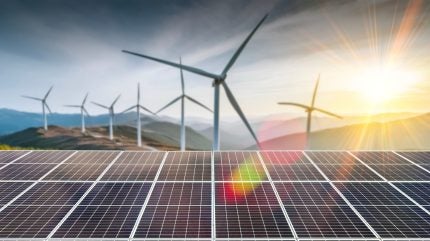
ACEN and UPC Renewables are developing two clean energy projects in India with a total capacity of 500MW: a 420MW solar farm in Rajasthan and a 120MW wind farm in Karnataka, as reported by PTI via Economic Times.
These renewable energy projects are set for completion by early 2027.

Discover B2B Marketing That Performs
Combine business intelligence and editorial excellence to reach engaged professionals across 36 leading media platforms.
The solar farm in the high-irradiance Barmer region of Rajasthan is projected to produce 767 gigawatt hours (GWh) annually.
The Karnataka wind farm will leverage strong monsoon winds and favourable terrain to deliver 391GWh of renewable energy each year.
Together, the projects will generate 1,158GWh of clean electricity annually, which will power approximately 241,000 homes and 876,000t of carbon emissions each year.
They will create 1,500 green jobs during the construction phase, contributing to local employment and economic development.

US Tariffs are shifting - will you react or anticipate?
Don’t let policy changes catch you off guard. Stay proactive with real-time data and expert analysis.
By GlobalDataCommenting about the collaboration with UPC Renewables, ACEN International CEO and group chief investment officer Patrice Clausse stated, “Our enduring partnership with UPC Renewables has been instrumental in enabling disciplined capital deployment across high-potential markets like India.”
UPC Renewables chairman and group CEO Brian Caffyn stated: “Following the successful deployment of 630 MWp of solar capacity in India, this next phase further strengthens our trusted partnership with ACEN and the excellent team in India driving this vision forward.”
This latest development comes as India’s power sector has seen growth, with total installed capacity increasing from 305GW in 2015/16 to 476GW by June 2025.
Official figures released on 22 June 2025 highlight strong expansion driven by rising demand and supportive policies for conventional and renewable energy sources.
Electricity generation in India has also grown from 1,168 billion units (BU) to an estimated 1,824 BU during 2024/2025. Power shortages have decreased from 4.2% in 2013/14 to just 0.1% in 2024/25, and 20 million households have gained access to electricity.





